24hespress |
- BREAKING NEWS: House passes sweeping coronavirus response package
- News Alert: Third Mar-a-Lago guest tests positive for coronavirus
- Letter from Executive Editor Marty Baron
- U-Haul lends a helping hand
- BREAKING NEWS: Pelosi strikes deal with Mnuchin on coronavirus package
- Now it’s an emergency
- Canadian government promises "significant" financial COVID-19 support
- NEWS ALERT: Iran warned not to mess with U.S. as CENTCOM spotlights 'enormous' firepower of nearby carriers
- NEWS ALERT: Iran warned not to mess with U.S. as CENTCOM spotlights 'enormous' firepower of nearby carriers
- BREAKING NEWS: Full appeals court to hear McGahn, border wall cases
- We’re finally starting to get a coronavirus response
- Iraq’s Crises Sharpen the Need for a Government (Wahab | PolicyWatch 3281)
- المغرب يعلن عن تسجيل ثامن حالة إصابة بفيروس كورونا المستجد
- عاجل | المغرب يعلن تسجيل ثامن حالة إصابة بفيروس كورونا المستجد
- Clare Crawley's Bachelorette season postponed due to coronavirus, source says
- BREAKING NEWS: Stock market surges after Trump coronavirus announcement
- How to Stop the Cycle of Rocket Attacks in Iraq (Knights | Politico)
- BREAKING NEWS: Trump declares national emergency as coronavirus spreads
- عاجل | المغرب يقرر "توقيف الدراسة" ابتداء من الاثنين إلى إشعار آخر
- وزارة الصحة تعلن شفاء الحالة الأولى المصابة بفيروس "كورونا" بالمملكة
- BREAKING NEWS: Louisiana postpones presidential primary due to coronavirus
- NEWS ALERT: AOC says she had to break 'principle' of not going on Fox because of coronavirus 'misinformation'
- News Alert: Miami mayor tests positive for coronavirus; Brazil's president tests negative after he and Trump met at Mar-a-Lago over the weekend
- الجيش العراقي يعلن مقتل خمسة جنود ومدني في الضربات الأمريكية
- The Bachelor's Peter Weber and Madison Prewett end their relationship 2 days after dramatic finale
| BREAKING NEWS: House passes sweeping coronavirus response package Posted: 13 Mar 2020 09:55 PM PDT The House passed sweeping legislation to respond to the coronavirus outbreak battering the nation, an overwhelmingly bipartisan vote to expand access to free testing, provide $1 billion in food aid and extend sick leave benefits to vulnerable Americans. The bill's bipartisan passage was virtually assured when President Donald Trump backed the measure — largely hammered out by Speaker Nancy Pelosi and Treasury Secretary Steven Mnuchin — and urged Republicans to support the bill. Read more.  This email was sent to kamal.sahim5.news@blogger.com by: POLITICO, LLC 1000 Wilson Blvd. Arlington, VA, 22209, USA Please click here and follow the steps to unsubscribe. | ||||||||||||||||||||||||||||||||||||||||||||||||||||||||||||||||||||||||||||||||||||||||||||||||||||||||||||||||||||||||||||||||||||||||||||||||||||||||||||||||||||||||||||||||||||||||||||||||||
| News Alert: Third Mar-a-Lago guest tests positive for coronavirus Posted: 13 Mar 2020 08:12 PM PDT
| ||||||||||||||||||||||||||||||||||||||||||||||||||||||||||||||||||||||||||||||||||||||||||||||||||||||||||||||||||||||||||||||||||||||||||||||||||||||||||||||||||||||||||||||||||||||||||||||||||
| Letter from Executive Editor Marty Baron Posted: 13 Mar 2020 06:38 PM PDT
| ||||||||||||||||||||||||||||||||||||||||||||||||||||||||||||||||||||||||||||||||||||||||||||||||||||||||||||||||||||||||||||||||||||||||||||||||||||||||||||||||||||||||||||||||||||||||||||||||||
| Posted: 13 Mar 2020 05:41 PM PDT
 | ||||||||||||||||||||||||||||||||||||||||||||||||||||||||||||||||||||||||||||||||||||||||||||||||||||||||||||||||||||||||||||||||||||||||||||||||||||||||||||||||||||||||||||||||||||||||||||||||||
| BREAKING NEWS: Pelosi strikes deal with Mnuchin on coronavirus package Posted: 13 Mar 2020 03:10 PM PDT Speaker Nancy Pelosi announced that she clinched a deal with Treasury Secretary Steven Mnuchin on a large-scale coronavirus response package meant to provide paid leave for workers, expand food aid and support widespread testing for the illness at no cost to patients. The development sent a wave of relief across Capitol Hill, which had been nervously awaiting the results of two days of backroom negotiations. The House is expected to pass the legislation quickly, with the Senate likely to follow suit as early as Monday. Read more. To change your alert settings, please go to https://secure.politico.com/newsletter-settings This email was sent to kamal.sahim5.news@blogger.com by: POLITICO, LLC 1000 Wilson Blvd. Arlington, VA, 22209, USA Please click here and follow the steps to unsubscribe. | ||||||||||||||||||||||||||||||||||||||||||||||||||||||||||||||||||||||||||||||||||||||||||||||||||||||||||||||||||||||||||||||||||||||||||||||||||||||||||||||||||||||||||||||||||||||||||||||||||
| Posted: 13 Mar 2020 03:03 PM PDT
 | ||||||||||||||||||||||||||||||||||||||||||||||||||||||||||||||||||||||||||||||||||||||||||||||||||||||||||||||||||||||||||||||||||||||||||||||||||||||||||||||||||||||||||||||||||||||||||||||||||
| Canadian government promises "significant" financial COVID-19 support Posted: 13 Mar 2020 02:50 PM PDT
| ||||||||||||||||||||||||||||||||||||||||||||||||||||||||||||||||||||||||||||||||||||||||||||||||||||||||||||||||||||||||||||||||||||||||||||||||||||||||||||||||||||||||||||||||||||||||||||||||||
| Posted: 13 Mar 2020 02:49 PM PDT U.S. Central Command closed out the week by sending a strong message to Iran regarding the "enormous" firepower of nearby carriers the USS Dwight D. Eisenhower and the USS Harry S. Truman.
| ||||||||||||||||||||||||||||||||||||||||||||||||||||||||||||||||||||||||||||||||||||||||||||||||||||||||||||||||||||||||||||||||||||||||||||||||||||||||||||||||||||||||||||||||||||||||||||||||||
| Posted: 13 Mar 2020 02:39 PM PDT U.S. Central Command closed out the week by sending a strong message to Iran regarding the "enormous" firepower of nearby carriers the USS Dwight D. Eisenhower and the USS Harry S. Truman.
| ||||||||||||||||||||||||||||||||||||||||||||||||||||||||||||||||||||||||||||||||||||||||||||||||||||||||||||||||||||||||||||||||||||||||||||||||||||||||||||||||||||||||||||||||||||||||||||||||||
| BREAKING NEWS: Full appeals court to hear McGahn, border wall cases Posted: 13 Mar 2020 02:20 PM PDT The full bench of the powerful D.C. Circuit Court of Appeal agreed to weigh in on two legal fights critical to President Donald Trump: whether the House can use the courts to enforce a subpoena for testimony from former White House counsel Don McGahn, and whether the House can sue to block Trump's effort to fund border wall construction over Congressional objections. The Friday afternoon announcement wiped out a major victory Trump scored last month when a smaller panel of the same court ruled, 2-1, that the courts should not wade into subpoena fights between Congress and the White House. The appeals court said it will hear arguments April 28 in both the McGahn and border wall disputes. There seems to be little chance that the Supreme Court will resolve the issues definitively before the November election, but rulings in the House's favor could lead the justices to intervene with a stay in the coming months. Prospects for Trump prevailing in the cases at the D.C. Circuit look grim. While the active bench of that court leans toward Democratic appointees by a 7-4 margin, the order Friday indicated that both of Trump's appointees--Judges Gregory Katsas and Neomi Rao--have recused themselves from both cases. As a result, the en banc court for McGahn will have only two Republican appointees. One additional GOP appointee, Judge David Sentelle, will join the en banc court considering the border wall funding dispute, the order said. Read more: https://www.politico.com/news/2020/03/13/appeals-court-don-mcgahn-border-wall-cases-128914 To change your alert settings, please go to https://secure.politico.com/newsletter-settings This email was sent to kamal.sahim5.news@blogger.com by: POLITICO, LLC 1000 Wilson Blvd. Arlington, VA, 22209, USA Please click here and follow the steps to unsubscribe. | ||||||||||||||||||||||||||||||||||||||||||||||||||||||||||||||||||||||||||||||||||||||||||||||||||||||||||||||||||||||||||||||||||||||||||||||||||||||||||||||||||||||||||||||||||||||||||||||||||
| We’re finally starting to get a coronavirus response Posted: 13 Mar 2020 02:17 PM PDT
 | ||||||||||||||||||||||||||||||||||||||||||||||||||||||||||||||||||||||||||||||||||||||||||||||||||||||||||||||||||||||||||||||||||||||||||||||||||||||||||||||||||||||||||||||||||||||||||||||||||
| Iraq’s Crises Sharpen the Need for a Government (Wahab | PolicyWatch 3281) Posted: 13 Mar 2020 02:16 PM PDT IRAQ'S HEALTH, FINANCIAL, AND SECURITY CRISES SHARPEN THE URGENCY OF FORMING A GOVERNMENT by Bilal Wahab PolicyWatch 3281 Allawi's cabinet failure may indicate growing Iraqi agency at Iran's expense, but the path toward political stability remains tortuous and foggy. On March 2, Iraqi prime minister-designate Mohammed Tawfiq Allawi stepped down after failing to gain sufficient parliamentary support for his proposed cabinet, putting President Barham Salih on the constitutional clock for designating another candidate within fifteen days. That timer runs out on March 17, and may have to be reset again if the next government formation attempt falters as well. Yet prolonging the process much further while continuing to champion patronage politics would be dangerous in light of the country’s multiple weighty challenges—a restive street that could quickly resume mass protests; a growing coronavirus outbreak at home and next door; renewed military hostilities between U.S. forces and pro-Iran militias; and looming financial insolvency due to the crumbling oil market. According to veteran financial expert Ahmed Tabaqchali, every one-dollar drop in average oil price costs Iraq $1.5 billion in annual revenues—a sobering figure given that the price of Brent crude just dropped from $68 per barrel to $36. WHY DID ALLAWI FAIL? Allawi’s inability to form a government signals that the political system of divvying up public offices and spoils (what Iraqis call muhasasa) remains resilient. Although he promised to sidestep the tradition of party nominations and form a technocratic cabinet, he was secretive and confrontational in his negotiations, which his rivals saw as evidence that he had struck a deal with leading Shia figure Muqtada al-Sadr. In the end, Allawi alienated the Kurds, most Sunni Arabs, and enough Shia members of parliament to lose a quorum. The Kurdish and Sunni parties may calculate that they can afford to wait for a more favorable arrangement because they are immune from the public protests that have squeezed the Shia parties since October. Also unchanged: the politics of disruption. While no single party has the ability to assemble a governing coalition, most smaller parties wield enough power to block one. Even militias with no seats in parliament have this disproportionate sway—for example, U.S.-designated terrorist group Kataib Hezbollah effectively vetoed intelligence chief Mustafa al-Kadhimi’s candidacy for prime minister. This bodes ill for whoever gets the nod to try again after Allawi, and for the resultant government’s ability to deal with so many crises at once. IRAN’S SETBACKS ARE SHIFTING THE LANDSCAPE Despite the persistent problems created by patronage issues, Iranian interference, and the elite’s unwillingness to listen to protestors, there may yet be an opportunity for a new, improved, and truly Iraqi process to take hold. Allawi’s failure is a punch in the nose to both Sadr’s authority and Iran’s ability to command results and broker Iraqi consensus around its diktats. Here, the assassination of Iranian general Qasem Soleimani and his partner, Kataib Hezbollah leader Abu Mahdi al-Muhandis, is having a substantial political impact. No single figure in Iraq or Iran is yet capable of playing the crucial consensus-building role that Soleimani pioneered in Iraqi Shia politics. Moreover, Sadr’s new alliance with Iran has proven barren so far. In seeking to dominate Iraqi politics while portraying himself as above it, Sadr only managed to antagonize his rivals. He then compounded his many errors by ordering his Saraya al-Salam militia to not only cease protecting protestors, but to join the crackdown against them. Last month, amid mounting deaths and injuries, he callously told an Iraqi television interviewer that the violence was his way of “pulling the ears of his children” who needed to be disciplined. Yet just because Iran is losing does not mean Iraq is winning. Iraqi politicians have a long track record of squandering their agency, with an incentive structure that leans toward dysfunction, sectarianism, and infighting rather than good governance and sovereignty. For years, Iraqi factions and militias beholden to Iran for their access to power and wealth have acted either in Tehran’s interest or their own—largely to the public’s detriment. There is space for this dynamic to change if Iraqi nationalists in the political class get over their fear of Iran, just as thousands of young protestors have done. Unfortunately, that is a tall order at the moment because Sadr and rival militias have benefited the most from the vacuum left by Muhandis, not the nationalists. Moreover, while the dilution and delegitimization of Iranian and militia influence is good news if channeled positively, the lurking financial and health crises may up the pressure on Baghdad to an unsustainable degree while exacerbating militia infighting, which would only worsen public suffering. WHAT’S NEXT? For now, Iran’s principal goal appears to be ending the Iraqi protests while it identifies and grooms replacements for Soleimani and Muhandis. The situation is a stark difference from just two years ago, when the 2018 parliamentary election appeared to cement Tehran’s influence for the long term by sidelining traditional political parties and empowering pro-Iran militias. Now that Soleimani is gone and Sadr has proven a dead end, Tehran may have to reverse course a bit and try courting/coopting other Iraqi parties and politicians who have local standing. Two old standbys—Nouri al-Maliki and Hadi al-Ameri—are emerging as prime candidates. Meanwhile, Iraq’s obstructionist politics may extend the status quo wherein a weakened Adil Abdulmahdi stays on as caretaker prime minister despite resigning four months ago. Iran and the militias are certainly vested in keeping him in place in order to preserve their 2018 election gains. The Kurdistan Regional Government favors his return as well, hoping that he would ensure a stable flow of federal budget funds from Baghdad. Yet maintaining the status quo is increasingly onerous. The impending health crisis will further delegitimize a government already battered by months-long protests. Plummeting oil prices and abruptly shrinking financial flows could prove even more consequential in cratering the elite’s staying power. Rather than forcing political players to focus on collective action, such crises are more likely to produce chaos. Absent Iranian orchestration, intra-Shia competition could cause further rifts as falling oil revenue shrinks the pie, while militias could escalate their violence against protestors and other rivals. The past two weeks offered a preview of this potential chaos. Sadr’s rivals cheered when Allawi proved unable to form a cabinet, and Kataib Hezbollah official Abu Ali al-Askari quickly asked top Shia cleric Ayatollah Ali al-Sistani to give his stamp of approval for reinstating Abdulmahdi as interim prime minister. In response, Sadr warned that he would reactivate the notorious Jaish al-Mahdi brigades. And within hours of Allawi’s announcement, rockets were fired at the Baghdad International Zone. The target was unclear—the U.S. embassy or the seat of Iraq’s government?—as were the perpetrators. The March 11 attack that killed U.S. and British personnel at Camp Taji only added to the fray. To avoid such volatility and move forward, the government will need a credible prime minister who can capitalize on recent successes while lowering expectations about what can be done at a time of multiple crises. The protest movement forced Abdulmahdi to resign and created ample momentum for early elections. Hence, rather than trying to dismantle the resilient patronage system right away, Iraq’s newfound agency would be better invested in creating a secure space for holding fair elections. That—plus crisis management—should be the next government’s primary mandate. Only a strong Iraqi nationalist candidate could persuade protestors to go home. This new prime minister-designate would then need to embark on the tough tasks of securing the space for protestors to translate their demands into political platforms, keeping the militias in check, passing a new election law that ensures accountability among elected officials, and laying out a credible process for bringing those implicated in violence against protestors to justice. U.S. ROLE Much of Washington’s recent approach to Iraq has been a mixed bag of sticks, including drone attacks on designated groups and additional sanctions. U.S. officials have put the onus squarely on Iraq’s leaders to ensure a transparent, wholly owned government formation process. So far, this approach has deterred politicians in Baghdad from making disastrous choices, but it has not nudged them toward constructive politics. Washington should therefore consider additional ways to nurture Baghdad’s newfound agency. Another item that should be high on the agenda is something the United States is capable of doing quite well when sufficiently focused: rallying international support for credible Iraqi elections. The UN Assistance Mission for Iraq (UNAMI) remains a legitimate, effective channel for helping Baghdad reform its election law, conduct proper redistricting, and orchestrate international monitoring. To stave off further disappointments, it is crucial to improve security and increase free political space between now and the next election. Bilal Wahab is the Wagner Fellow at The Washington Institute. THE WASHINGTON INSTITUTE FOR NEAR EAST POLICY 1111 19TH STREET NW, SUITE 500 WASHINGTON, DC 20036 202-452-0650 202-223-5364 (fax) www.washingtoninstitute.org Copyright 2020. All rights reserved. Follow us on Twitter. Follow us on Facebook. | ||||||||||||||||||||||||||||||||||||||||||||||||||||||||||||||||||||||||||||||||||||||||||||||||||||||||||||||||||||||||||||||||||||||||||||||||||||||||||||||||||||||||||||||||||||||||||||||||||
| المغرب يعلن عن تسجيل ثامن حالة إصابة بفيروس كورونا المستجد Posted: 13 Mar 2020 01:52 PM PDT
| ||||||||||||||||||||||||||||||||||||||||||||||||||||||||||||||||||||||||||||||||||||||||||||||||||||||||||||||||||||||||||||||||||||||||||||||||||||||||||||||||||||||||||||||||||||||||||||||||||
| عاجل | المغرب يعلن تسجيل ثامن حالة إصابة بفيروس كورونا المستجد Posted: 13 Mar 2020 01:48 PM PDT
| ||||||||||||||||||||||||||||||||||||||||||||||||||||||||||||||||||||||||||||||||||||||||||||||||||||||||||||||||||||||||||||||||||||||||||||||||||||||||||||||||||||||||||||||||||||||||||||||||||
| Clare Crawley's Bachelorette season postponed due to coronavirus, source says Posted: 13 Mar 2020 01:48 PM PDT
| ||||||||||||||||||||||||||||||||||||||||||||||||||||||||||||||||||||||||||||||||||||||||||||||||||||||||||||||||||||||||||||||||||||||||||||||||||||||||||||||||||||||||||||||||||||||||||||||||||
| BREAKING NEWS: Stock market surges after Trump coronavirus announcement Posted: 13 Mar 2020 01:11 PM PDT Stocks rebounded Friday on signs of a more powerful federal response to the coronavirus outbreak, climbing rapidly into the close as President Donald Trump announced a series of measures to calm the crisis. The Dow Jones Industrial Average soared nearly 2,000 points, or more than 9 percent, the largest percentage gain since the 2008 crisis. The surge reversed nearly all of Thursday's tumble, which was the worst since the 1987 market crash. The market remains far below its high from a month ago, but Friday's moves offered an early sign of hope from investors gripped by the coronavirus pandemic. Read more here. To change your alert settings, please go to https://secure.politico.com/newsletter-settings This email was sent to kamal.sahim5.news@blogger.com by: POLITICO, LLC 1000 Wilson Blvd. Arlington, VA, 22209, USA Please click here and follow the steps to unsubscribe. | ||||||||||||||||||||||||||||||||||||||||||||||||||||||||||||||||||||||||||||||||||||||||||||||||||||||||||||||||||||||||||||||||||||||||||||||||||||||||||||||||||||||||||||||||||||||||||||||||||
| How to Stop the Cycle of Rocket Attacks in Iraq (Knights | Politico) Posted: 13 Mar 2020 01:03 PM PDT HOW THE U.S. CAN STOP THE SURGE OF DEADLY ROCKET ATTACKS IN IRAQ by Michael Knights Politico Congress and the Trump administration should privately agree to some ground rules for timing deterrent strikes on truly high-value targets, while quietly deploying more force-protection assets like Patriot missiles. READ THIS ARTICLE ON OUR WEBSITE In the early hours of Friday, U.S. and British aircraft conducted multiple airstrikes on the missile storage sites of the Iraqi militia group Kataib Hezbollah (KH), a pro-Iranian group that was also hit by unclaimed airstrikes in Syria the day before. Until Wednesday, when a rocket attack killed two Americans and one British service member on a sprawling base north of Baghdad, there hadn’t been much noise from Tehran since its reprisal in early January after the U.S. killed Qassem Soleimani. This week’s attack, which was meticulously planned and clearly not the work of the ramshackle remnants of the Islamic State, changed that. A truck with two rows of rocket-launching tubes discreetly installed in the flatbed approached the base undetected and fired the rockets in one sudden salvo. As someone who has gotten lost while walking around the maze of concrete barriers that make up the 15-square-mile Camp Taji base, I can attest to the great accuracy of the strike. Taji is massive, and the strike hit at just the right moment and just the right spot, probably guided by a drone or human agent. The next day, KH, the Iraqi Shiite militia closest to Iran, praised the attack as an act of the pro-Iranian “resistance” against U.S. “occupation,” a surefire sign that pro-Iranian militias were behind the strike and the Shiite militia version of “humble bragging.” By that stage, either U.S. or Israeli aircraft had already struck back at KH and other Shiite militias, albeit just over the border in Syria late on Wednesday, killing around two dozen fighters and wounding many more. The strikes, and the subsequent round launched very early Friday morning, were reminiscent of the United States’ retaliatory attacks in late December on KH after the militia group caused the last U.S. death in Iraq in a rocket attack on December 27. Friday morning’s strikes may not be the end in a new tit-for-tat cycle that has the potential to spark a wider conflict. Iran is escalating through its Iraqi militias because it wants to raise pressure to evict U.S. forces from Iraq and to threaten Iraqi leaders ahead of next week’s selection of a replacement for resigned Iraqi Prime Minister Adel Abdal-Mahdi. As U.S. Secretary of Defense Mark Esper said on Thursday: “You don’t get to shoot at our bases and kill and wound Americans and get away with it.” But how can deterrence be established quickly to end the cycle of attacks and prevent further loss of American lives? ONE COUNTRY, TWO ENEMIES The deaths of two U.S. personnel—one military, one contractor—at Taji comes days after the March 8 deaths of two U.S. Marine special forces operators in a firefight with the Islamic State in northern Iraq. The two episodes underline the complexity of what the U.S. military is attempting to do in today’s Iraq. The mission of Combined Joint Task Force Operation Inherent Resolve (CJTF-OIR, or the coalition, for short) is still to defeat the last remnants of the Islamic State. In recent weeks, the coalition has ramped up its special forces raiding alongside Iraqi commandos, achieving significant successes against Islamic State leadership targets. When the U.S. gets on a roll, triggering new raids on the basis of data from laptops and phones recovered in each prior raid, terrorists face the most unrelenting foe in the world. But boosted effectiveness comes at a cost of added risk, as the March 8 deaths illustrate. To complicate matters, Iran-backed militias like KH are seeking to lever the U.S.-backed coalition out of Iraq by any means necessary, regardless of the coalition’s contribution to the anti-Islamic State struggle. Militias like KH sought the removal of international forces long before they killed an American on December 27, before they themselves were struck on December 29, and before their patriarchs, Iranian General Qassem Soleimani and Iraqi militia chieftain Abu Mahdi al-Muhandis, were killed by the U.S. on January 3 in a Baghdad drone strike. WHAT IRAN’S MILITIAS WANT Now the militias are doubling their efforts, including issuing warnings to Iraqi officials and soldiers to distance themselves from the coalition (which they did not). In recent months, KH has threatened Iraqi MPs to vote to remove U.S. forces (enough of them resisted this call to prevent a vote with quorum) and threatened Iraq’s president Barham Salih if he met with President Donald Trump at the World Economic Forum (he met Trump anyway). Now KH is also issuing statements vetoing certain candidates for Iraq’s imminent selection of a new prime minister, suggesting which candidate should be picked (current premier Adel Abdal-Mahdi), and explicitly suggesting how the country’s most senior religious leaders should rule on the matter. This is all unprecedented territory in Iraq, particularly the openness of the threats, similar to Iran’s recent elections where the regime blocked over 7,000 candidates for Parliament and invalidated a third of sitting MPs from seeking reelection. RESTORING DETERRENCE The U.S. has clearly not yet deterred the militias from killing Americans and the result is that U.S. forces in Iraq are not being protected by either the Iraqi government or, ultimately, by our own government. This is not a sustainable situation. What can change?
Last night’s strikes on KH missile and rocket bases were an attempt to take the high road, but the lack of large secondary explosions suggests that KH had evacuated its valuable weapons long before the strike. Iran’s militia proxies in Iraq can trade empty buildings or even two dozen of their own rank and file for three Anglo-American fatalities all day, every day. This a game we will lose. The right approach probably lies somewhere between the high and low roads, with very prompt, decisive and unclaimed attacks demonstrated against some senior Iraqi militia leaders in order to make others think very seriously about their personal future. But high-value leadership targets—which Iran and the militias do value—are generally not available to hit the day after Americans are killed: they are keeping their heads down. Congress and the administration need to sit privately and agree to some ground rules for the use of military force that allow the U.S. military to delink the timing of deterrent strikes, so that we can strike the right targets when they become available, to deter militia attacks that are highly likely to come otherwise. In parallel, the U.S. should toughen its mindset, quietly bringing the force protection assets into Iraq that it needs (i.e., Patriot missiles and anti-rocket close-in defenses) without further consultation with an Iraqi government that would rather adopt a “don’t ask, don’t tell” approach. And finally, the U.S. should let the militias keep over-reaching, keep showing their hand as would-be dictators under Iran’s control, while the U.S.-led coalition keeps helping Iraq to defeat the Islamic State. This is a game we can win. Michael Knights is a senior fellow with The Washington Institute. Since 2003, he has conducted extensive on-the-ground research in Iraq alongside security forces and government ministries. This article was originally published on the Politico website. THE WASHINGTON INSTITUTE FOR NEAR EAST POLICY 1111 19TH STREET NW, SUITE 500 WASHINGTON, DC 20036 202-452-0650 202-223-5364 (fax) www.washingtoninstitute.org Copyright 2020. All rights reserved. Follow us on Twitter. Follow us on Facebook. | ||||||||||||||||||||||||||||||||||||||||||||||||||||||||||||||||||||||||||||||||||||||||||||||||||||||||||||||||||||||||||||||||||||||||||||||||||||||||||||||||||||||||||||||||||||||||||||||||||
| BREAKING NEWS: Trump declares national emergency as coronavirus spreads Posted: 13 Mar 2020 12:38 PM PDT President Donald Trump on Friday declared a national emergency in his latest bid to combat the escalating coronavirus crisis. Trump said the move would free up $50 billion in additional funding. He also said the order would allow Health and Human Services to waive certain regulations and laws to more quickly deliver testing and care for coronavirus patients. "No resource will be spared," Trump said. Trump's decision comes after his administration has faced weeks of criticism for failing to adequately respond to the spreading disease, which has killed more than 5,000 people worldwide and infected tens of thousands. Read more here. To change your alert settings, please go to https://secure.politico.com/newsletter-settings This email was sent to kamal.sahim5.news@blogger.com by: POLITICO, LLC 1000 Wilson Blvd. Arlington, VA, 22209, USA Please click here and follow the steps to unsubscribe. | ||||||||||||||||||||||||||||||||||||||||||||||||||||||||||||||||||||||||||||||||||||||||||||||||||||||||||||||||||||||||||||||||||||||||||||||||||||||||||||||||||||||||||||||||||||||||||||||||||
| عاجل | المغرب يقرر "توقيف الدراسة" ابتداء من الاثنين إلى إشعار آخر Posted: 13 Mar 2020 12:05 PM PDT
| ||||||||||||||||||||||||||||||||||||||||||||||||||||||||||||||||||||||||||||||||||||||||||||||||||||||||||||||||||||||||||||||||||||||||||||||||||||||||||||||||||||||||||||||||||||||||||||||||||
| وزارة الصحة تعلن شفاء الحالة الأولى المصابة بفيروس "كورونا" بالمملكة Posted: 13 Mar 2020 10:12 AM PDT
| ||||||||||||||||||||||||||||||||||||||||||||||||||||||||||||||||||||||||||||||||||||||||||||||||||||||||||||||||||||||||||||||||||||||||||||||||||||||||||||||||||||||||||||||||||||||||||||||||||
| BREAKING NEWS: Louisiana postpones presidential primary due to coronavirus Posted: 13 Mar 2020 09:39 AM PDT Louisiana will postpone its presidential primary, which was originally scheduled for April 4, as part of the state government's response to the coronavirus pandemic. To change your alert settings, please go to https://secure.politico.com/newsletter-settings This email was sent to kamal.sahim5.news@blogger.com by: POLITICO, LLC 1000 Wilson Blvd. Arlington, VA, 22209, USA Please click here and follow the steps to unsubscribe. | ||||||||||||||||||||||||||||||||||||||||||||||||||||||||||||||||||||||||||||||||||||||||||||||||||||||||||||||||||||||||||||||||||||||||||||||||||||||||||||||||||||||||||||||||||||||||||||||||||
| Posted: 13 Mar 2020 09:32 AM PDT Rep. Alexandria Ocasio-Cortez assuaged her Twitter followers Thursday night after her first appearance on Fox News, saying she went against "principle" and gave the right-leaning network an interview for the greater good.
| ||||||||||||||||||||||||||||||||||||||||||||||||||||||||||||||||||||||||||||||||||||||||||||||||||||||||||||||||||||||||||||||||||||||||||||||||||||||||||||||||||||||||||||||||||||||||||||||||||
| Posted: 13 Mar 2020 09:28 AM PDT
| ||||||||||||||||||||||||||||||||||||||||||||||||||||||||||||||||||||||||||||||||||||||||||||||||||||||||||||||||||||||||||||||||||||||||||||||||||||||||||||||||||||||||||||||||||||||||||||||||||
| الجيش العراقي يعلن مقتل خمسة جنود ومدني في الضربات الأمريكية Posted: 13 Mar 2020 08:58 AM PDT
| ||||||||||||||||||||||||||||||||||||||||||||||||||||||||||||||||||||||||||||||||||||||||||||||||||||||||||||||||||||||||||||||||||||||||||||||||||||||||||||||||||||||||||||||||||||||||||||||||||
| The Bachelor's Peter Weber and Madison Prewett end their relationship 2 days after dramatic finale Posted: 13 Mar 2020 07:52 AM PDT
| ||||||||||||||||||||||||||||||||||||||||||||||||||||||||||||||||||||||||||||||||||||||||||||||||||||||||||||||||||||||||||||||||||||||||||||||||||||||||||||||||||||||||||||||||||||||||||||||||||
| You are subscribed to email updates from Maroc Top Trend. To stop receiving these emails, you may unsubscribe now. | Email delivery powered by Google |
| Google, 1600 Amphitheatre Parkway, Mountain View, CA 94043, United States | |

































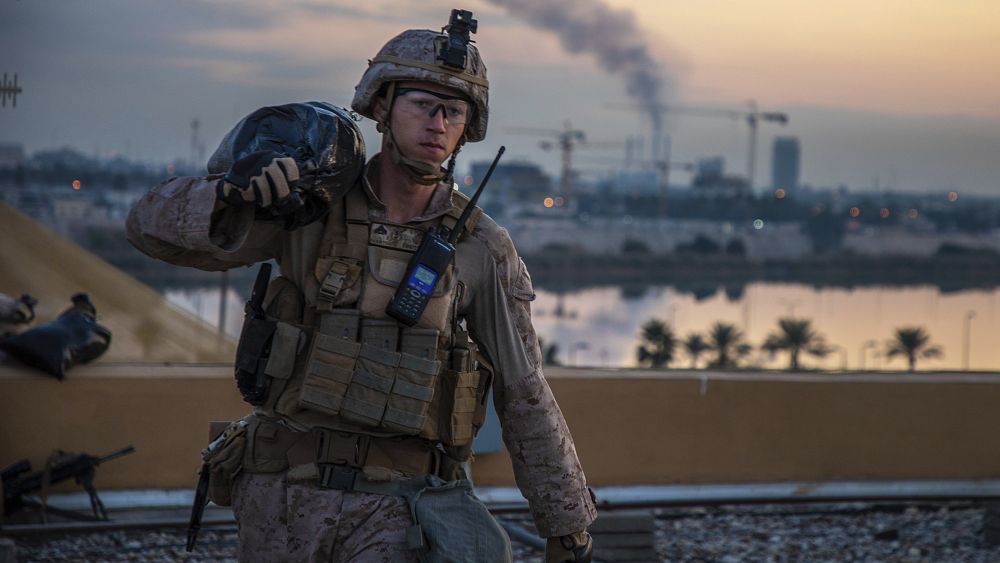

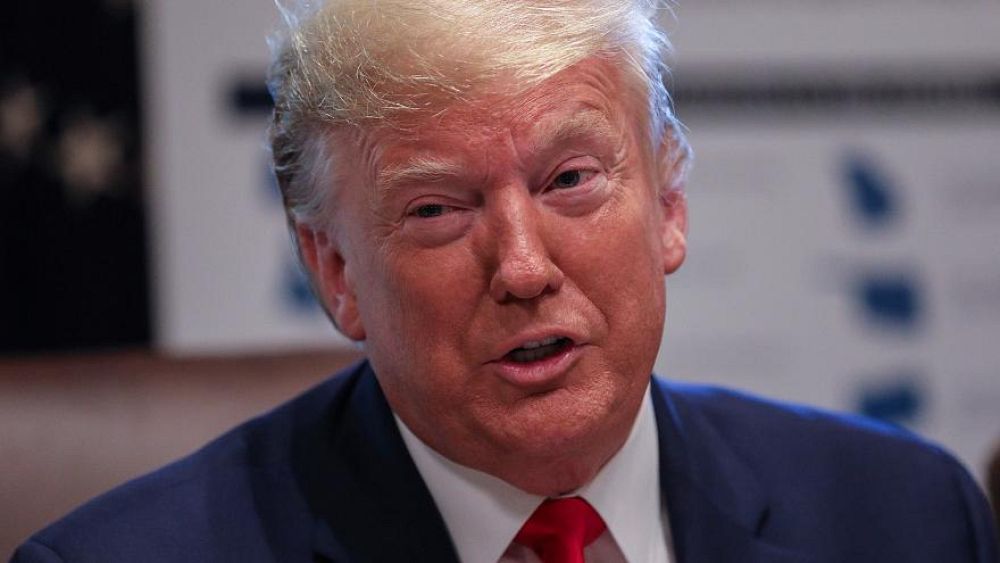
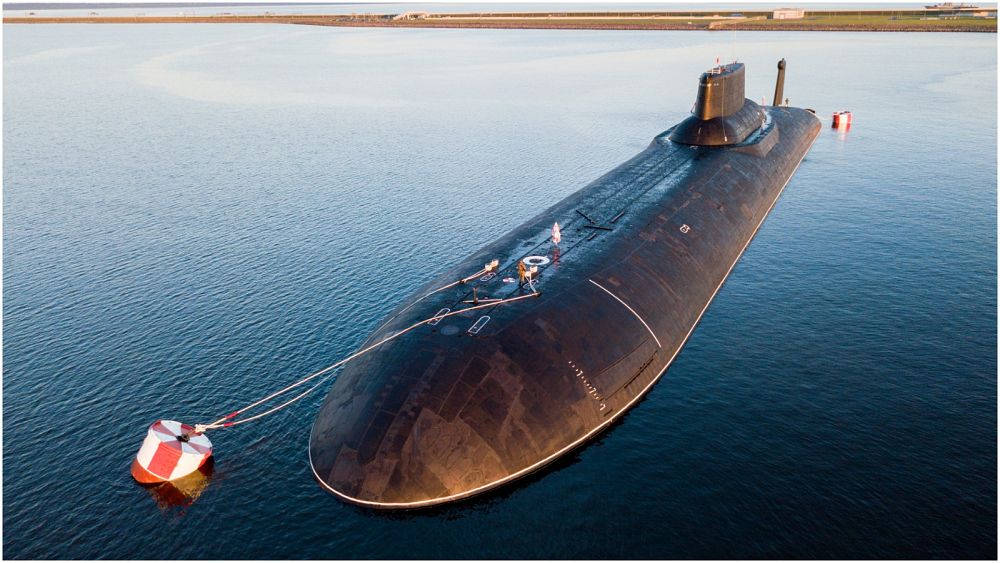
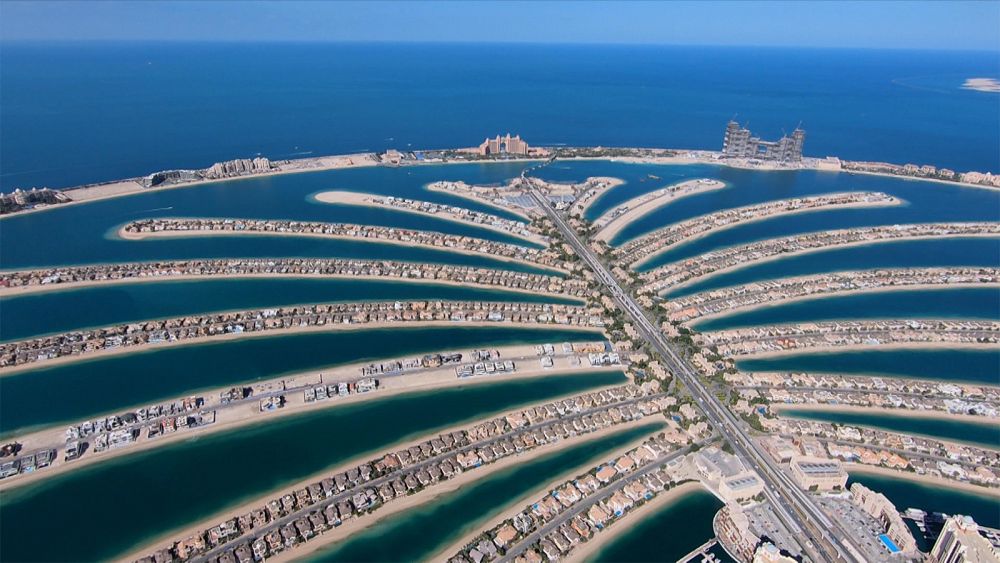
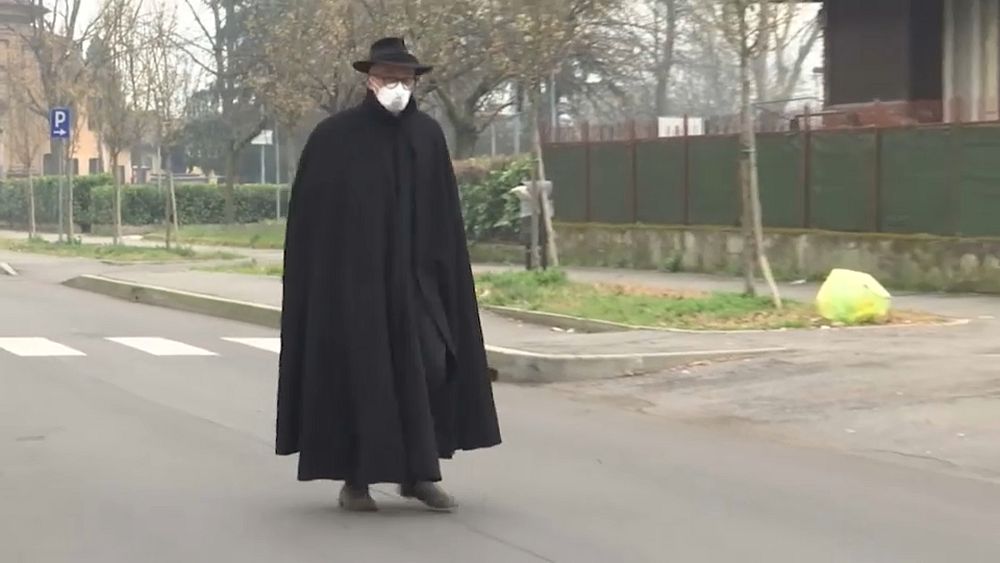
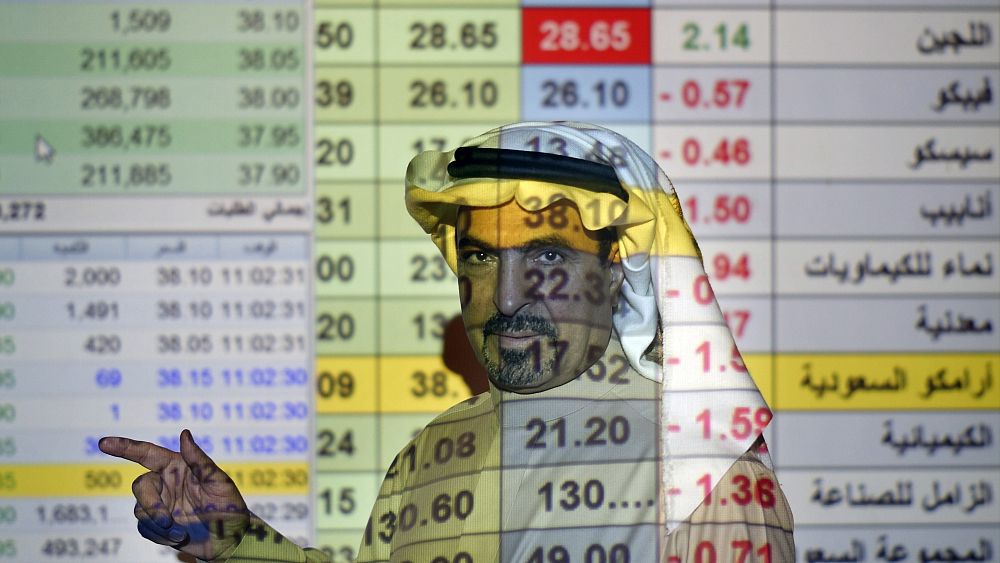

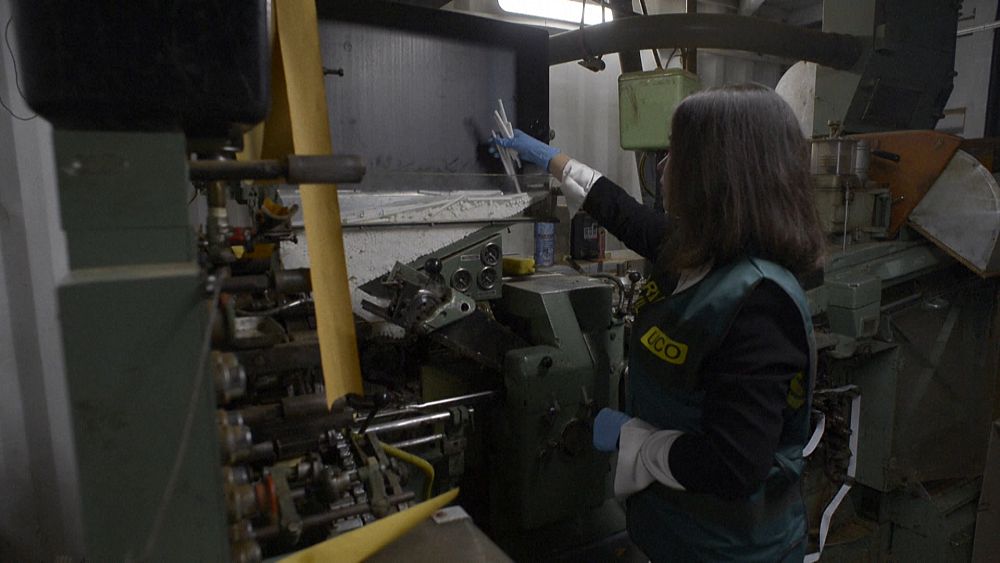







No comments:
Post a Comment